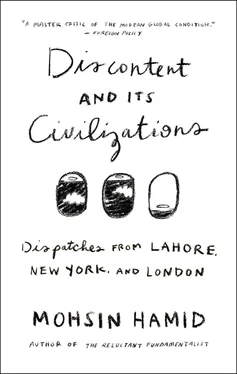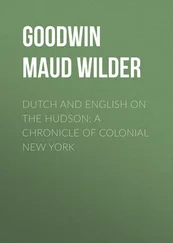The fissures are visible at multiple levels. The most obvious example is that of attack helicopters hunting down rebels in Balochistan and the tribal areas of our northwest frontier — rebels who are our fellow citizens. But equally dangerous is the chronic failure of our provinces to agree on new dams essential to meeting our future needs for water. Or the inability of our society to channel dissent into debate, an inability that means the publication of cartoons in a newspaper in Denmark is able to provoke not just a response in our own newspapers, but also riots that transform our cities into virtual battlegrounds. The failure to bridge such divisions is particularly dangerous for Pakistan as a country with myriad ethnic and religious groups. The rich-poor divide feeds the waves of crime rocking cities like Karachi, and the ideological war between Sunni and Shia Muslims fuels domestic terrorism.
What Pakistan needs is compromise: between provinces, between religion and secularism, between the desire for growth and the imperative to check inflation, between us and our neighbors. But a government led by a president in a soldier’s uniform has proven ill-suited to striking compromises. So we must try the alternative: a return to democracy, with its inherent horse trading, messiness, and false starts. Such a transition will not be without risk, and many Pakistanis are frightened by the potential for instability. But the alternative, a continuation of the status quo, in which our president lacks the legitimacy that comes from having stood in a fair election and large segments of the country feel unrepresented by the state, is even riskier.
The first challenge, of course, is to convince Musharraf to stand down at the end of his current term and allow the elections scheduled for 2007 to be free and fair. He would do well to bear in mind that the people of Gwadar want jobs and a hospital, not army checkpoints. No matter how many tribal chiefs are killed, in this the people of Gwadar will never be alone.
(2006)
After Sixty Years, Will Pakistan Be Reborn?
SIXTY YEARS AGO, British India was granted independence and partitioned into Hindu-majority India and my native nation, Muslim-majority Pakistan. It was a birth of exceptional pain.
Handed down to me through the generations is the story of my namesake, my Kashmir-born great-grandfather. He was stabbed by a Muslim as he went for his daily stroll in Lahore’s Lawrence Gardens. Independence was only a few months away, and the communal violence that would accompany the partition was beginning to simmer.
My great-grandfather was attacked because he was mistaken for a Hindu. This was not surprising; as a lawyer, most of his colleagues were Hindus, as were many of his friends. He would shelter some of their families in his home during the murderous riots that were to come.
But my great-grandfather was a Muslim. More than that, he was a member of the Muslim League, which had campaigned for the creation of Pakistan. From the start, Pakistan has been prone to turning its knife upon itself.
Yet 1947 is also remembered in my family as a time of enormous hope. My great-grandfather survived. And the birth that year of his grandson, my father, marked the arrival of a first generation of something new: Pakistanis.
My mother recalls a childhood of sugar and flour rations. The 1950s, she says, were a decade of a young country finding its feet. She grew up in a small town and she describes a fierce love for Pakistan felt by her and her schoolmates. Pakistan was theirs, a source of pride and identity, symbolically both a parent and, because it inspired such feelings of protectiveness, a sibling.
In the 1960s, my mother’s family moved to Lahore, which had been the cultural and governmental center of Punjab Province before the region was ripped apart at independence. By then, Pakistan’s economy had begun to boom. My parents speak of cinemas showing the latest films, colleges producing idealistic graduates, and young couples walking along the banks of the River Ravi.
Yet Pakistan’s true glory at that time was the southern port of Karachi, where my uncle, then a young banker, went to live. It was, he says, a vibrant and cosmopolitan city, a place of cafés and sea breezes and visiting international flight crews; it hummed with the energy and ingenuity of millions of former refugees who had come from India.
Still, these rosy family recollections paint an incomplete picture. For the civilian government of Pakistan had been deposed by a military coup in 1958. General Muhammad Ayub Khan was a steadfast American ally against the Soviet Union and the recipient of large amounts of American weaponry and aid.
But deprived of democracy for much of my parents’ youth, Pakistanis were unable to articulate an inclusive vision of what their country stood for. Making things worse, the country was divided in two, separated geographically by India. West Pakistan, the army’s heartland, received far more than its fair share of resources. After years of mistreatment and rigged elections, East Pakistanis fought a war of independence, India took up arms on their side, and East Pakistan became the nation of Bangladesh.
I was born in 1971, the year of this second partition, as Pakistan once again turned its knife upon itself.
After the bloodshed, what was left of Pakistan was forced to ask what it stood for. Democracy was restored, and Prime Minister Zulfikar Ali Bhutto became wildly popular with a simple slogan: “Bread, clothing and a home.” In other words, Pakistan existed to lessen the poverty of its citizens.
Bhutto was deposed in 1977 and hanged. So, like my parents before me, I was born in a democratic Pakistan but spent much of my youth in a dictatorship. And like General Ayub before him, the new dictator, General Muhammad Zia-ul-Haq, was a steadfast American ally against the Soviet Union. But whereas General Ayub had been largely secular, General Zia envisioned Pakistan as a theocratic Muslim state. It became a staging ground for the anti-Soviet jihad in Afghanistan and underwent a dramatic process of social engineering called Islamization.
Although we disliked our president, my friends and I remained fiercely patriotic. We idolized Pakistani sporting heroes in cricket, field hockey, and squash. We felt a thrill of achievement when we listened to bootleg cassettes of the first Pakistani rock bands. For us, the success of anything Pakistani was a source of personal pride.
In 1988, shortly before I left for college in America, General Zia died in a suspicious airplane crash and civilian rule was again restored. But the democracy of the ’90s was a disappointment, with power alternating between ineffective, feuding governments.
As my friends married and had children, a third generation of Pakistanis began to arrive. Like my parents’ generation, and like mine, these children were born in a democracy but would spend their youth under pro-American military rule, this time under General Pervez Musharraf.
And now Pakistan is once again turning its knife on itself. Insurgencies simmer in the regions bordering Afghanistan, and suicide bombers have begun to kill fellow Pakistanis with increasing frequency.
For me personally, the sixtieth anniversary of independence, while worthy of note, is not of the utmost importance. My hopes are already dashing ahead and attaching themselves to the elections that are scheduled for later this year.
On one side are the forces of exclusion, who wish Pakistan to stand only for their kind of Pakistani. These include the political descendants of the man who stabbed my great-grandfather, the people who seek to oppress those who are clean shaven or those who toil for meager wages or those who are from provinces other than their own. But arrayed against them is something wholly new.
Читать дальше












